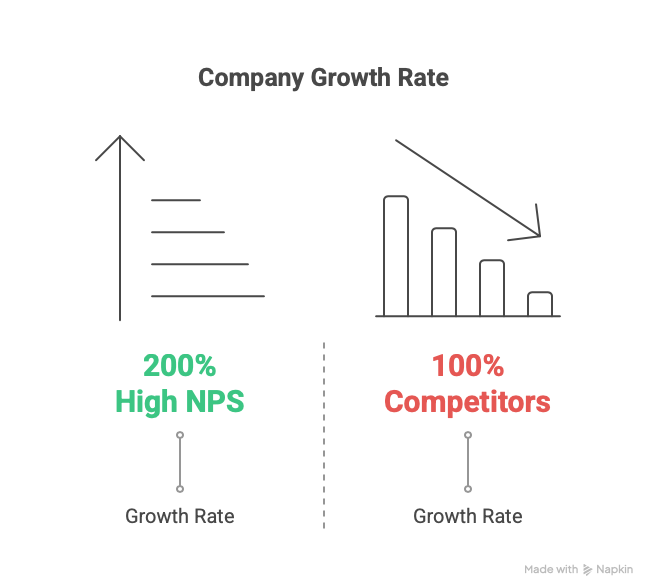Brand strength, a two-word term, plays a pivotal role in determining not just the present but also assists in predicting the future and projecting the returns for investors. A brand's strength is integral to investors because they assess it to understand the true credibility of the business, product, and even the entrepreneurs pitching the idea in front of them.
Think about this: suppose you are not an entrepreneur or a business owner pursuing to become a brand but an investor. Now, answer this: would you invest in a business that has a weak brand strength? No, right?
Well, I guess this question itself answers the main reason why brand strength is evaluated and why it matters to investors so much. When founders prepare for fundraising, their pitch decks are full of metrics: MRR, CAC, LTV, burn rate, and runway. All these quantitative figures matter. But increasingly, there’s an intangible signal investors are tuning into: brand strength. This reflects the brand impact on startup funding as a key intangible asset. But before you start making assumptions, let’s make this very clear. Brand strength is much more than just a visual identity or an impressive tagline. Brand strength is both made up of and at the same time solidifies the perception of the startup in the eyes of users, the market, and the media.
This can again be summed up in one question: why should people care? Remember that brand strategy plays an integral role in this. Brands without strategy bleed money silently. This is the reason why I have picked this topic today. So, class, in today’s session we are going to decode the criticality of brand strength, the why and the how it is calculated and used to determine the further course of action.
So let’s start with the why. Understanding this unlocks how brand impact on startup funding becomes measurable.
Why Brand Strength is a Funding Signal
The simple answer to this is that the brand strength helps an investor comprehend how the brand will be in the long run or at least in the foreseeable future. With all its assessment and analysis, the investors are ensuring something that could be something. But of course it is not something today, so they need proof, evidence, and validation that they will make money by investing in this brand. That’s the core of brand impact on startup funding, turning potential into confidence. These assessments offer positive or negative signals about the brand, which typically include:
- Market pull, not just founder push
- Reduced go-to-market risk
- Potential for premium pricing
- Long-term defensibility
As per a study by McKinsey, companies that prioritize brands consistently outperform those that don’t by 20% in return to shareholders over a decade. Likewise, for early startups, brand strength became better investor terms and resulted in higher valuation.. This is a direct proof point of brand impact on startup funding. It is also seen that startups with strong consumer brand recognition are often able to reap 20%–30% higher valuations at seed and Series A rounds. The company was founded as per the analysis from Redpoint Ventures.
How Investors Evaluate Brand Strength
Here are some evaluation techniques that you can employ for brand strength determination:
User advocacy: There is a Net Promoter Score; you can account for it as a proxy for emotional loyalty and product market brand fit. With the help of the NPS indicator, investors can know that the product users aren’t just buying the product but are also recommending the product to others they know and in the market. This can be termed as gauging referral behavior. According to Bain & Company, companies with high NPS scores grow at more than twice the rate of their competitors.

Organic growth and branded search volume: When a brand grows automatically, it is a great sign of brand strength. This shows that the brand is reaching and penetrating the market on its own without any external push. This also reflects that the businesses are not forcing the product on the audience and, at the same time, are saving money from not indulging in paid ad campaigns. Investors will often look at:
- The ratio of branded to non-branded search traffic
- Growth in direct traffic over time
- Search trends on Google or social media mentions
Do you know that branded search terms have a 2x higher conversion rate than generic ones, according to WordStream? Remember this: if people are searching for you, you’ve created market desire; this is clearly something money can’t buy. It’s also another signal of brand impact on startup funding, through organic investor interest.
Earned media: When you have strong brand strength, you will automatically attract many things, one of which will be attention, and the best part is you don’t even have to pay for it. A credible presence in media outlets, podcasts, guest columns, or speaking events signals influence. Again, let’s go through a statistic. According to Edelman’s Trust Barometer, 63% of consumers trust brands more when they see third-party validation through media or peer recommendations.
Clarity in narrative and consistency in design: This is a presumptuous notion that investors do not care or give attention to aesthetics. Let’s bust this myth. Investors do care about it because it reflects founder discipline, strategic clarity, and customer empathy. A consistent visual identity, tight positioning, brand story and emotionally intelligent messaging often distinguish funded startups from forgettable ones.
Word-of-mouth momentum: According to Nielsen, 92% of consumers trust earned media, such as recommendations from friends and family, over all other forms of advertising. We all know the power of word-of-mouth publicity. It actually works because people trust people and like to take their word for reviews. As a founder, you can go on user communities on Reddit, Slack, or Discord, or even active social conversations around your product can be more powerful than paid acquisition.
Brand Metrics Founders Should Include in Pitch Decks
Brand strength is a brand strategy ROI. If you are a founder planning to do a sales pitch, here are some key metrics that are brand indicators and, at the same time, are strategic proof points in early-stage fundraising.
- NPS and qualitative feedback quotes from users
- Ratio of branded vs. non-branded traffic (Google Search Console/Ahrefs)
- Direct traffic growth over time
- Earned media coverage or podcast appearances
- Branded search volume (Google Trends)
- Social and community engagement metrics, e.g., mentions, shares, testimonials
Each of these supports brand impact on startup funding as a tangible differentiator in investor conversations.
Closing Thoughts
Lastly, I’m only going to tell you to work on your brand strength as much as possible. Take any road, follow a path, and make plans and create strategies, but do not keep them shelved. Execute them accordingly to ensure growth and attention. When users advocate, when communities buzz, and when investors feel your spark before reading the metrics, that’s brand at work.
Taking proper funding from an investor is no joke. The investors who are willing to invest in your business aren't going to ask simple, nerdy questions; they’ll be interested in a lot more than you can possibly imagine. So your best move is to create a perception of your brand, solidify your brand strength, and present your product in such a way that it impresses the investors to the last bit. That’s the essence of brand impact on startup funding, credibility that speaks before numbers do. With that being said, let’s end this session, and we’ll catch up soon
.png)


